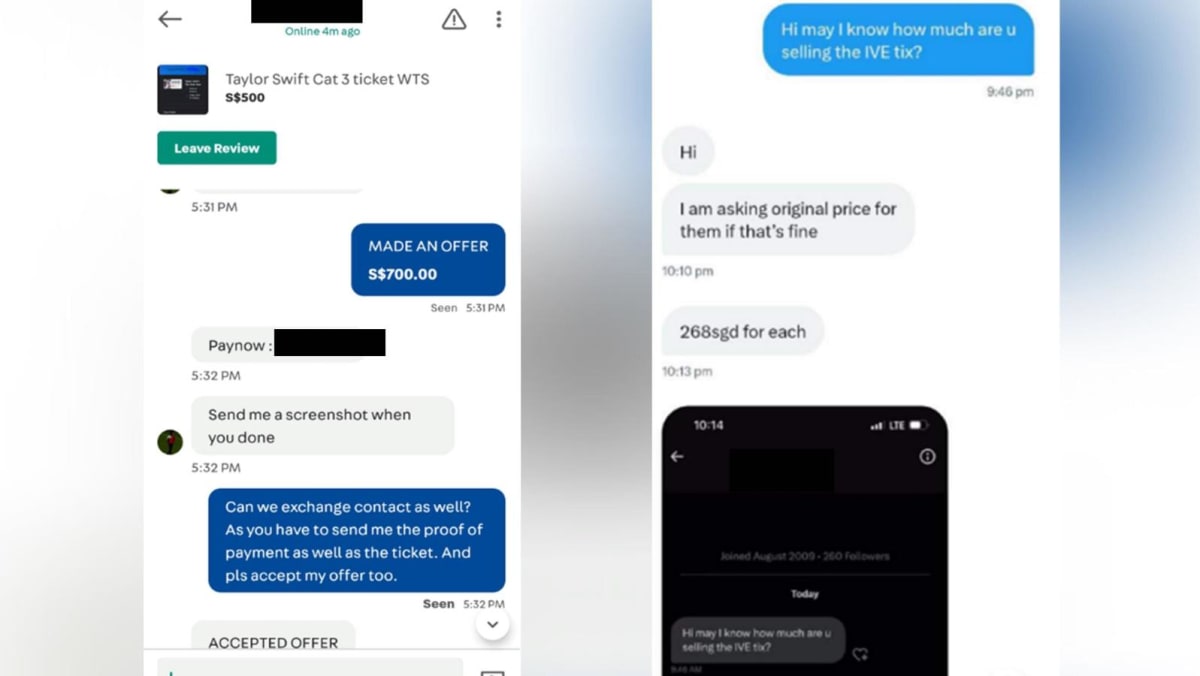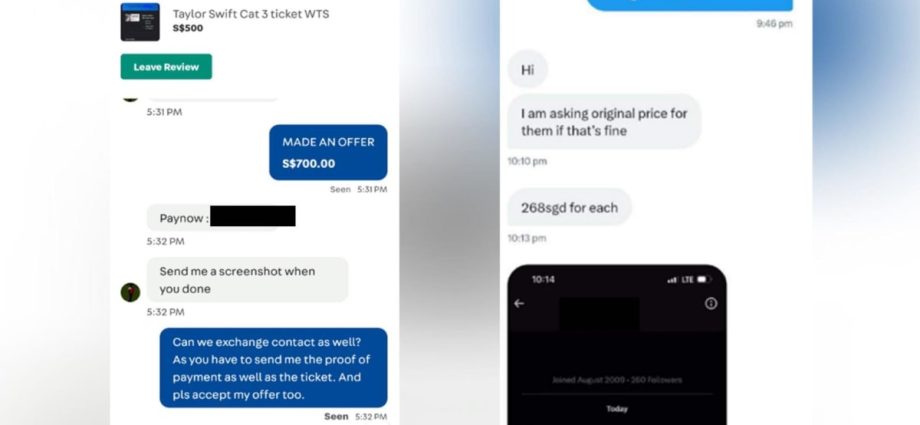
They would then contact the scammers via the platform’s in-app messaging function or be redirected to messaging apps such as WhatsApp, Telegram or WeChat to purchase the tickets.
When asked if the tickets were authentic, scammers would then provide screenshots and videos of fake tickets or receipts.
“To urge victims into making payment quickly, scammers would claim that ticket sales were time-sensitive or limited in quantity, and also promised to email or transfer the tickets to the victims’ Ticketmaster account after successful payment,” said the police, adding that payments were usually made via virtual credits, PayNow or bank transfers.
“In some cases, the scammers would also request for additional payments by citing reasons such as not receiving the payments sent by the victims,” said the police.

